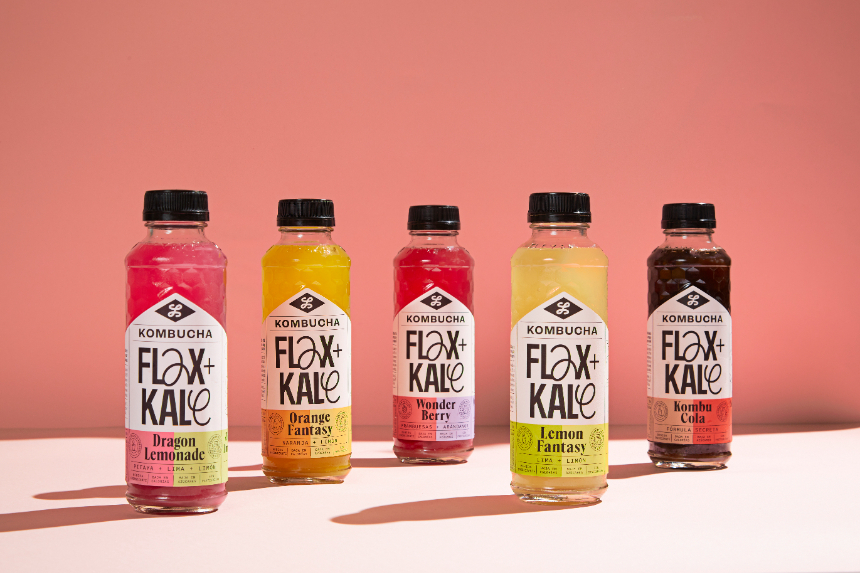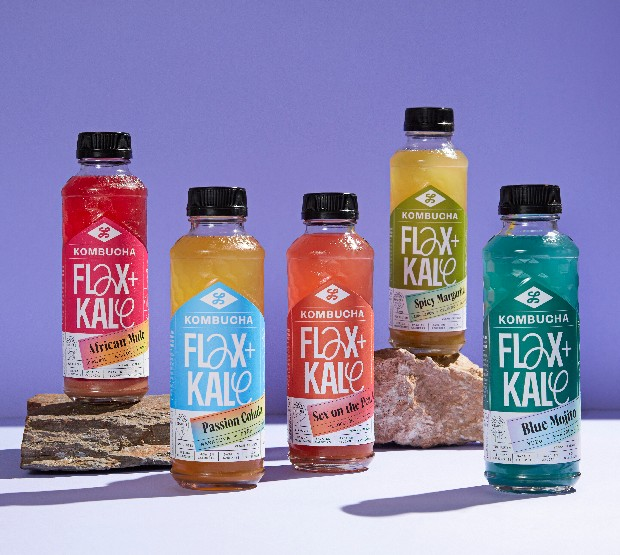Kombucha is a type of fermented tea with a somewhat acidic taste, similar to cider, slightly effervescent and can be sweetened by adding natural juices. It is, in fact, a probiotic drink and, therefore, much healthier than a soft drink.
History of kombucha
The history of kombucha goes back thousands of years. It is believed that this fermented beverage originated in China during the Qin dynasty, around 221 BC. It then spread throughout Asia and Eastern Europe, where it was valued for its purported health benefits. For centuries, kombucha was home-produced and passed down from generation to generation. However, it was in the 1960s that it gained popularity in the West, especially in the United States, as part of the trend toward health foods and beverages. Since then, kombucha has experienced a boom in the natural beverage industry and has become a widely available and appreciated consumption option worldwide.
How is kombucha made?
This ancient beverage is made by combining tea and sugar with a SCOBY (symbiotic colony of bacteria and yeast). The combination of tea, sugar, bacteria and yeast embarks on a long fermentation process that results in a refreshing and naturally carbonated beverage.
In a second fermentation, the desired flavors are added, and the result is a healthy, naturally fizzy soft drink that can end up being addictive.
What exactly is the SCOBY?
What is Scoby?
At first glance, it is a whitish, gelatinous formation that grows on the surface of sweetened tea. Although it is often called a mushroom, because its appearance and texture make it resemble some fungi that grow on the trunk of certain trees, it is not. It is a culture to initiate the fermentation of tea.
This culture is made up of bacteria and yeasts that live in perfect symbiosis, hence its name SCOBY, which stands for "symbiotic community of bacteria and yeasts".
This combination of microbial species is added to a tea drink with sugar and once added, they transform the sugar into cellulose.
As a result of this process, certain acids and enzymes are generated, which give the fermented tea its delicious flavor and color, increasing its preservation power and enhancing its healthy properties and providing beneficial effects for the consumer's health.
How is kombucha tea fermented?
Kombucha tea is obtained by lactic fermentation mainly, to give an acidic drink with gas bubbles. The fungi and bacteria convert the sugar into ethyl alcohol, carbonic gas and acetic acid and form on the surface of the liquid a jellyfish-like gelatinous body called SCOBY.
What is the composition of kombucha tea?
Flax & Kale kombucha is made from a careful combination of organic and high quality ingredients. Its main base is green tea, to which natural sugar is added to feed the bacteria and yeast culture. In addition, tasty and beneficial ingredients such as fruit juices, herbs and spices are incorporated to enhance its flavor and provide a refreshing and healthy experience. This kombucha is fermented for a suitable period of time to obtain the perfect balance between acidity and sweetness, resulting in a delicious beverage full of probiotics.
What are the benefits of Kombucha?
Kombucha has gained popularity due to its potential health benefits, which include among others:
- It's good for your gut: like other fermented foods, kombucha supplies probiotics, which can help improve digestive health by promoting the growth of certain gut bacteria and improving the diversity of gut bacteria.
- Boosts defenses: fermented foods and beverages boost the body's immunity, as our immune system depends on our gut health, and fermented foods provide good bacteria for our gut.
- Delays aging: during the fermentation of Kombucha, many antioxidant compounds from the tea leaves are released. Mainly polyphenols and catechins, with high antioxidant capacity, which help delay the signs of cellular aging.
- Improves digestion: kombucha tea contains a large number of important enzymes, including amylase and invertase, which have the mission of breaking down very large food molecules into smaller ones, facilitating digestion.
Learn more about kombucha: https://flaxandkale.com/es/blog/beneficios-kombucha







